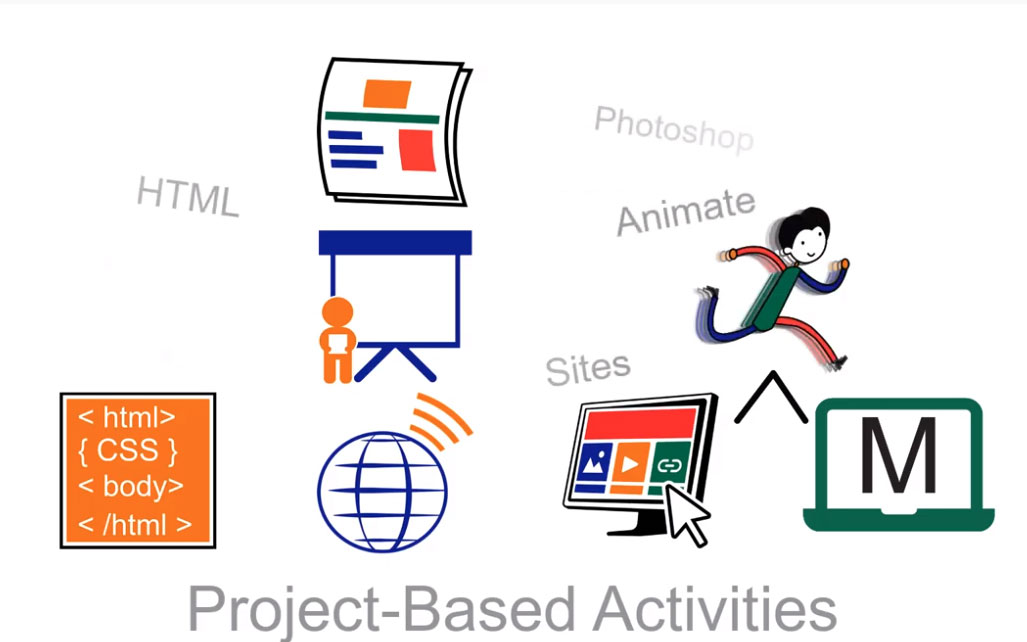Benefits of Project-Based Learning
‘Projects’ the most common jargon that we hear in offices is a reality of the corporate world today. There are teams who are allocated different job tasks and all work when put together forms a project, which is then presented to the management. By definition, a ‘project’ is an individual or collaborative effort that is carefully planned in order to achieve a particular aim.’
How can project-based learning be applicable to an Educational Institute? Well, in today’s highly competitive world, each school is trying to outdo the other and the IB culture is picking up pace. The ‘student-centered’ learning approach is being given more importance, where the child is the center of focus, and the lesson plans are incorporated basis the grasping capabilities of the student. Progressive regions such as Dubai in the Middle East, therefore pay focus on project-based learning due to a number of good reasons.
Here are a few advantages of the Project-based learning approaches:
#1 Collaboration
Usually, a project is a joint or collaborative effort by students who work together in groups on a topic that is assigned by the class teacher. While doing so, interaction takes place and there is an exchange of ideas. Students learn to foster friendships and learn about their own strengths and weaknesses. Another important skill they develop is the importance of listening skills. Good listening can help students develop the right attitude towards the workplace and learn to maintain positive relations with everyone. As they put it, ‘When there is teamwork and collaboration, wonderful things can be achieved.’
#2 Critical Thinking
Academic knowledge and technical capabilities are great in a workspace, but alongside that, additional competency such as ‘Critical Thinking ability’ gives a boost to the applicant’s resume. In the context of academic space, Critical Thinking means going beyond books or merely memorizing facts. It involves problem-solving and coming up with solutions using an evidence-based approach. Working on a project topic, say, ‘Gravity in our Solar System’ is a great way to get students digging the internet for information, referencing white papers, picking up a relevant book on Solar System from the library, and even interviewing relevant people from the industry. Executing a project in a hands-on manner will enhance the learning process manifold.
#3 Creativity
Chalk and paper barely give students the chance to express their creativity. A teacher-centric approach becomes more like a one-sided conversation where the aim of the school is to complete the assigned topics and get students to appear for exams. Contrary to this, project-based learning focuses on up-skilling the student by not only focusing on the academic aspect but also developing the student holistically. When assigning project work, schools in the UAE and other regions not only grade students for the quality of matter but also for the way it was presented and how innovatively the slides are designed. Children learn to use apps like Canva, Figma, and Slideshow Maker, which contributes to their knowledge of technical skills. Thus, project-based learning is the Holy Grail to unlocking creativity among students. TechnoKids follows a project-based approach and divides computer science lessons into modules. Students can collaborate, participate, and evolve at a solution, to enhance their coding skills and technical capabilities.
#4 Empowerment
It’s easy to study the Questions and Answers from an important pool of bank, but real empowerment is gained when students are given the freedom and independence to use their skills in the best possible way. IB Schools in GCC and other developed regions, organize an incubation cell that promotes the exchange of ideas and debate between teams, thereby empowering students to put their views forth. Executing a project comes with the division of roles and responsibilities, where one person assumes the role of a project leader. The project leaders then decides how to assign the tasks amongst others depending on each one’s strengths. Assuming a position of leadership at an early age empowers children to be more independent and identify their own capabilities. Celebrating one’s own achievements and reflecting upon oneself, is good progress in itself.
In conclusion, ‘learning by doing’ via project work instills a love for learning and passion which cannot be discovered in the pages of a textbook.







Recent Comments